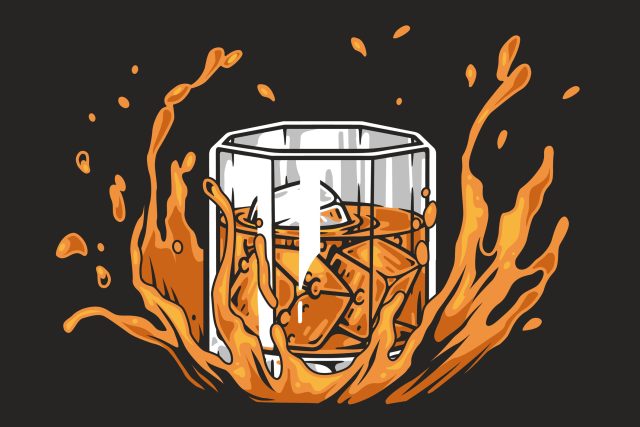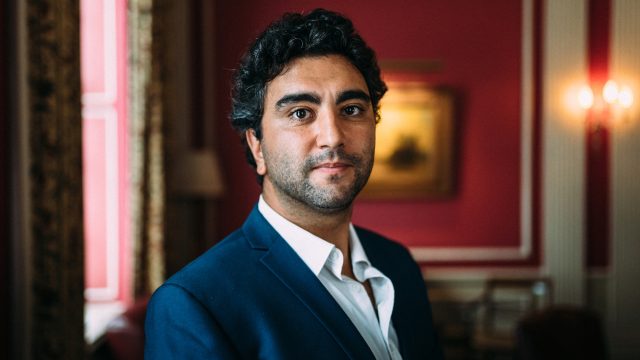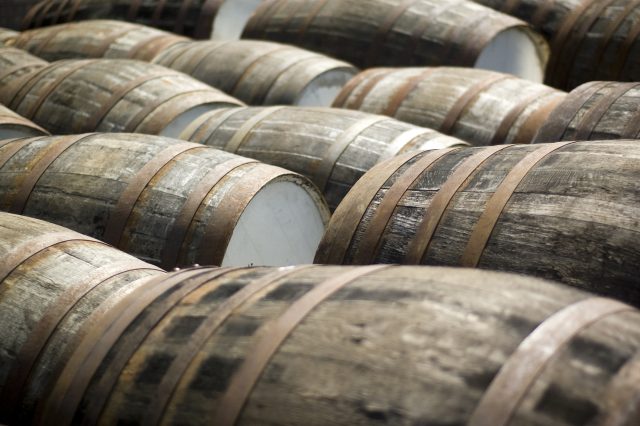This website uses cookies so that we can provide you with the best user experience possible. Cookie information is stored in your browser and performs functions such as recognising you when you return to our website and helping our team to understand which sections of the website you find most interesting and useful.
Cask whisky investment fraud: ‘it’s going to be a bloodbath’
Whisky writer and Keeper of the Quaich Felipe Schrieberg is dedicated to warning people about whisky cask investment fraud, having launched Protectyourcask.com last month. db breaks down how to spot the red flags.

Schrieberg and whisky broker and consultant Mark Littler launched Protectyourcask.com in March, with the aim of providing clear, transparent information about purchasing and owning a cask of Scotch whisky.
Advice and guidance outlined on the site are designed to minimise the risk of becoming a victim of fraud, something Schrieberg is seeing more and more of in the market nowadays.
“Years ago we saw this new trend come up – cask investment,” he says.
From the very beginning, Schrieberg and fellow whisky professionals smelt a rat; this was a clear opportunity for fraudulent activity. “There were a lot of warning signs about how these casks were being marketed and sold,” he says, “and we kept our eye on that ‘so-called market’ over the years.”
Over time, the prominence of whisky as an alternative asset has grown, and so too have the red flags regarding scam sales of whisky casks. “We just saw the things that disturbed us get worse and worse, and more blatant,” he says, causing his anger to rise.
Schrieberg and Littler, sufficiently wound up by the “blatant misinformation” surrounding cask whisky investment, set out to debunk it. “We both got so angry about it, we just had to do something, and we wanted to start by tackling misinformation about what it means to buy and own a cask.”
It’s easy to understand the appeal of owning your own barrel — a “cool romantic notion” to many a Scotch lover, Schrieberg says.

But considering the risks of an unregulated market, are the peat-soaked waters just too murky? “Through the rose-tinted glasses of owning a whisky cask, you might end up in a tricky situation,” the whisky writer says.
Schrieberg even warns people against investing at all. He says: “When you’re looking at buying a cask, the state of the market, the risks involved, and the knowledge needed to figure out how to really negotiate it safely mean that your average Joe Public really shouldn’t go into this.”
“This is an unregulated, highly risky market with bad faith actors looking to take advantage of people,” he warns.
Fraudulent activity in the cask investment space is nothing new, with scammers operating in the market “throughout the history of the modern whisky industry”, the last wave being in the early 2000s.
Protectyourcask.com is therefore a tool to be used by people who are determined to plough ahead with their investment. Whisky casks can be a valuable asset when bought through legitimate means, and Schrieberg and Littler are keen to increase awareness and education around how to purchase them safely.
“I would say if people really, really want to have a Scotch whisky cask, buy direct from a distillery,” is his first piece of advice. “If you’ve got even 1% of doubt about how a middleman is talking to you about ownership, just don’t do it.”
With a lack of regulation and the potential for fraudulent activity, Schrieberg has helped db break down some of the key warning signs to look out for when investing in whisky casks.

Red flags:
1. Lack of transparency — “If you’re buying a cask, to know that it’s definitely in your name you need to have contact with the warehouse that has that cask, and for the warehouse to know it belongs to you. It’s surprising how many of these investment firms don’t mention this at all,” he says.
“You really should just be able to be in touch with the warehouse. If you’re not, that’s a red flag, because then it means that you’re being told you own a cask, but legally, for all intents and purposes, it’s the firm that owns the cask.”
2. Promising returns on investment — Schrieberg says prospective investors should be wary about investment firms quoting concrete numbers and percentages when it comes to return on investment. “Here’s the plain and simple fact: there is no transparent data on the sale of scotch whisky casks for investment, that data does not exist at all,” he says.
3. If the price isn’t right — Schrieberg admits that, particularly when it comes to Scotch, whisky cask prices are through the roof. “Scotch whisky casks are expensive now,” he says. “I’m an independent bottler and the prices I pay per cask now are easily double what I would have paid five years ago.”
However, when it comes to fraudulent firms, he says prices can be much higher than the market value of the individual cask; a sign that there may be something fishy going on.
Crashing down
So what happens when investors want to sell?
Schrieberg is gearing up for a “car crash” in three to five years “when more and more people want to sell their casks and make their money back”.
“There’s going to be a bloodbath,” he says, once investors “find out that something’s wrong with the cask or there’s no money, or the firms have disappeared.”
Since its launch last month, Schrieberg says Protectyourcask.com has received positive feedback from trade members and cask investors alike. The site’s founders continue to push for greater awareness of existing guidelines and regulations when it comes to purchasing and owning a cask.
The Scottish Parliament is scheduled to hold a debate to ‘celebrate the value of the Scottish whisky industry’ in Holyrood this week, with whispers that the state of the cask investment environment will be up for discussion. Schrieberg says: “The fact that it’s being brought up in Scottish Parliament is a sign that this is an issue that needs to be dealt with, in a way that has not been dealt with yet.”
Related news
Portman Group launches first responsible marketing audit

